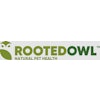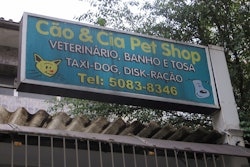
I always enjoy the educational presentations at Petfood Forum, and 2019 was no exception. Of particular interest to me was the talk entitled "Pet food lawsuits: Recent trends and the future of labeling litigation," by attorney Michael Annis. If anything, his presentation confirmed that my advice to many of my regulatory clients who are also facing legal challenges is sound; namely, "get a lawyer!"
There are different types of legal issues a pet food company may face, but with respect to class action lawsuits these are often the result of labeling claims purported to misrepresent the product in violation of state consumer protection laws (FYI, California is the state in which these types of actions are most prevalent). As opposed to an enforcement action initiated by a regulatory official, a class action suit would be brought forward by a non-governmental legal firm representing a group of similarly affected consumers.
The alleged misleading claims often relate to the food's health benefits or product quality, either in words or imagery, but in any case the premise of the lawsuit is that the representations made on the labeling constitutes economic fraud. In other words, even if there was no demonstrated adverse effect or other tangible injury to the animal eating the product, the purchasers were swindled into buying the product under false pretenses, hence deserve due compensation for damages.
Challenges of translating regulatory compliance to “real-world” consumers
In principle, the model pet food labeling regulations as per the Association of American Feed Control Officials (AAFCO) are foremost intended to be for the protection of the consumer already. There are regulatory guidelines for some types of claims; e.g., "natural" and "human grade" (AAFCO), and "made in USA" (Federal Trade Commission). For others, such as "wholesome" or "homemade," there are no explicit AAFCO standards, but such claims would still be subject to enforcement action if when scrutinized were found not to be suitably documented as truthful and not misleading.
Still, as a practical matter, it is infeasible for regulations alone to cover all potential permutations of a claim that could render it misleading. What may be sufficient for the regulator may not be adequate when it relates to the public. Perception is reality, and in the case of class action suits, it's how the consumer perceives the claim that is important, not how the regulator views it.
So, for example, a pet food company may take great efforts to ensure regulatory compliance for its "natural" product; i.e., it is in full accordance with existing AAFCO guidance and all aspects of the claim are properly documented and on file. However, because "natural" is a decidedly vague concept, AAFCO's interpretation of the term does not account for all other possible perspectives, such as the absence of GMOs and no inclusion of synthetic trace nutrients, even when necessary for the health and well being of the animal and sufficiently disclaimed as per AAFCO. Similarly, AAFCO may understand the enforcement of its guidance as it relates to unavoidable amounts of synthetic processing aids to be an impractical matter, but the typical consumer most likely would not.
So, even while a pet food company's "natural" claim passes muster with feed control officials, that does not necessarily protect the firm from challenges on legal grounds. Notwithstanding any regulatory standards in place, a truthful statement can still be deemed to be misleading in a court of law if it can be shown to lead the reader to make a false assumption under a different standard.
How can pet food companies protect themselves?
How do you protect yourself? I concur with Annis' advice to have thorough documentation on hand to substantiate any contemplated claim before it appears anywhere on a label. I also appreciate his advice to "avoid trigger words." For example, you cannot be sued over your use of the term "natural" if you do not have it on your label in the first place. However, that's easy to advise but not always easy to implement. To effectively compete in the pet food marketplace, the need to differentiate yourself from competitors is high, and not being sued is no comfort if your product is not being sold, either. Simply, some degree of risk is necessary.
Still, it is always sound to thoughtfully consider the potential risks associated with any and all words or images that appear on your label, both from a regulatory and a legal perspective. It's great to strive to conform to any and all state and federal labeling requirements, but don't assume that alone will shield you from all class action lawsuits or that it will provide an adequate defense should you ever face one. Thus, beyond regulatory compliance, consultation with a lawyer on strategies to limit your potential legal exposure appears prudent.

















